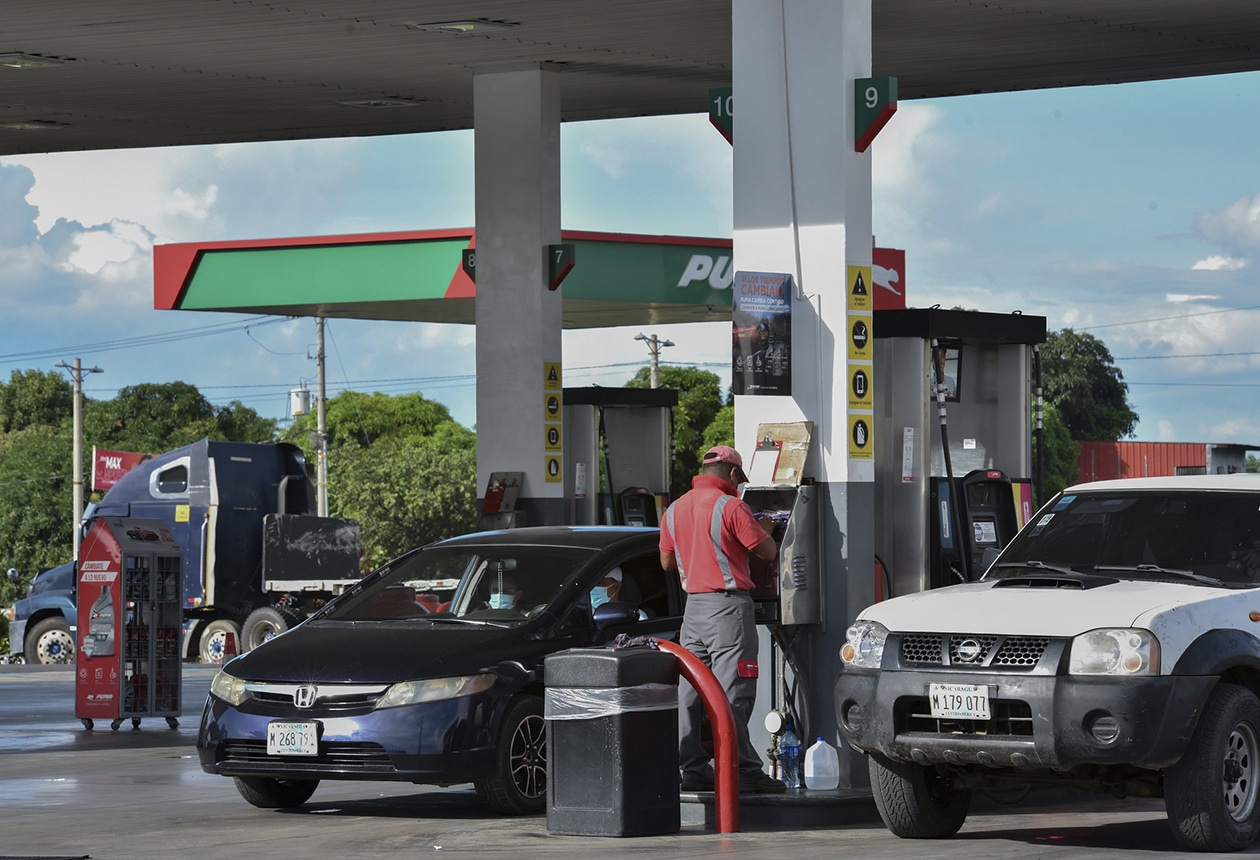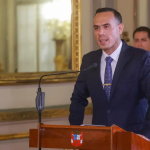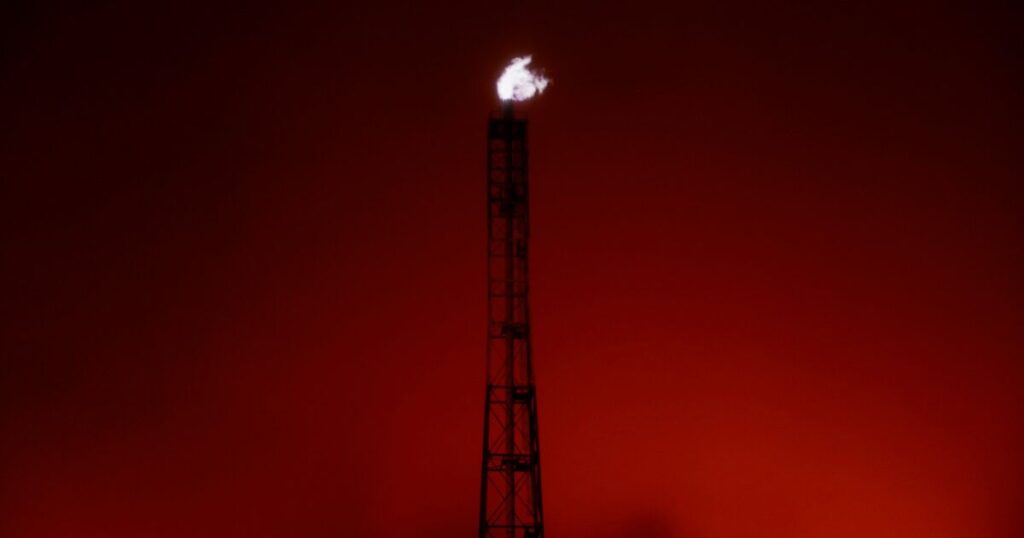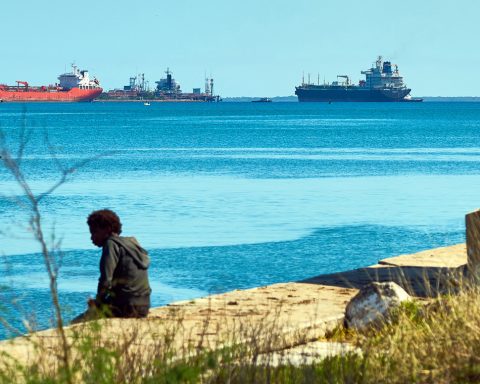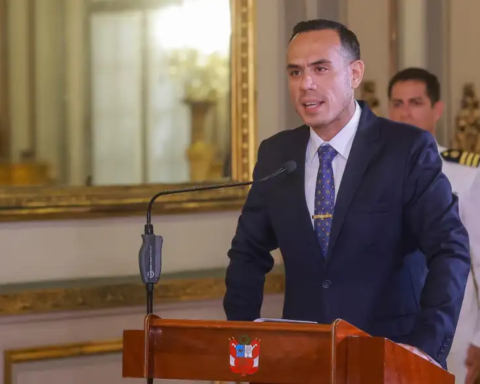The Russian invasion of Ukraine and the escalation of the conflict led by President Vladimir Putin will continue to cause upheaval in world markets linked to hydrocarbons and energy, and Nicaragua will not be the exception, warns energy industry expert Patricia Rodríguez. “Oil unfortunately moves with the ups and downs of world politics, so it affects us considerably, especially in prices.”
In Nicaragua, 30% of the energy consumed by citizens is thermal, that is, produced with petroleum derivatives, which will raise the operating costs of generating companies, and the impact will be transferred to the electricity rate and service receipts of Nicaraguan households.
This will also impact the transportation sector, and all the productive means of the country that depend on oil derivatives, which had been suffering five consecutive weeks of increases in the country. And faced with this scenario, the Government does not have nor has it presented a strategy to cushion the impact.
For the engineer Rodríguez, there are different ways to mitigate the consequences, and in the case of energy, it is that the application of VAT on electricity billing for consumers is temporarily suspended, and that the Government does not freeze fuel prices, but that it regulates them and that it bets on a long-term strategy in which the country does not depend on petroleum derivatives, but on renewable energy.
World hydrocarbon markets are in turmoil due to the Russian invasion of Ukraine. What impact will this have on the price of oil and Nicaragua’s imports?
Yes, unfortunately all these problems that occur in the world, due to politics between countries or groups of countries, have an impact on countries like ours, where we do not have oil reserves, therefore, we still depend in a high percentage on its use in different consumption sectors, and in different uses.
And oil, unfortunately, moves with the ups and downs of world politics, so it affects us considerably, especially in prices.
In Managua, gasoline, a liter of super gasoline costs 44.39 cordobas; while diesel, which is the most consumed fuel in the country, costs 40.10 cordobas per liter, 152 cordobas per gallon. In what term will the effects of the crisis in Ukraine be felt in Nicaragua?
The oil market is an uncertain market. I always say that not even the most expert people in this market, who follow it day by day, can predict how prices are going to evolve. In fact, we saw that on Friday of last week it fell, and on Monday it dawned on the rise, it is difficult to predict.
So what’s up? Here the companies that buy oil, and that refine, have to make their calculations, let’s say, based on some very short-term predictions. So if prices go higher, then the expectation is that they go higher here. And history tells us. What has happened in Nicaragua? Most of the time that oil goes down, it doesn’t go down, not only during the time that oil was down, but in different proportions. In other words, it decreases in a smaller proportion than international prices decrease. However, when it has been on the rise, it lasts much longer than what has risen, and in a much greater proportion; and the prices that you just mentioned show us, here we are already paying almost five dollars per gallon of fuel.
Diesel is not only used in transportation, but there is also diesel that is used by industry to produce, there are boilers that consume diesel, so it is a necessary good for production, for mobilization, and that, well, is going to have a Huge impact, if prices go up. So, it is a difficult situation, of uncertainty that we have.
Fuels have experienced five consecutive weeks of increases. Could fuel prices skyrocket even more?
Yes, without a doubt, because since the marketing margin of the oil companies is not regulated, then they take advantage of these circumstances to increase more than they should.
This oil crisis is not from now, it is from the seventies, that we have an oil crisis, and what have we learned from it? Nothing. Because if there had been an energy policy since the first oil crisis, not only to regulate prices, but also to migrate to other local, indigenous energy sources, not only for electricity generation but also for transportation, we would be less impacted currently measured.
Oil is a geopolitical product, therefore, we should have already learned, it is never too late, but we already have more than thirty years of these oil crises, and we continue to use a high percentage of oil derivatives, which we do not have.
And on this occasion, will the crisis in Ukraine produce any significant impact on electricity generation in the country?
Yes, electricity generation still, despite the increases in renewable generation, still represents thirty percent in the summer season; in the rainy season we have difficult situations with climate change, we already saw last winter was lousy, then the renewable participation can decrease a little and thermal generation can increase, because we no longer have generation with biomass in the rainy season, the Wind generation decreases with wind power.
As we still have that percentage, and prices are extremely high, there is a risk that the price of electricity will increase, due to higher operating costs of the generating companies with petroleum derivatives. That is why it is extremely important for the country to continue with the increase in renewable generation, because many say -but renewable generation is very expensive and takes longer-, but it maintains a stable price that is not subject to the fluctuations of international oil prices. So, yes, there is that possibility that they will increase, and that would be a terrible thing.
And can you estimate what the impact of production costs will be for companies?
It is difficult because it is a product that is beyond the reach of us consumers, including regulators. So, I think that the strategy, the priority in the strategies so that it impacts us less is not to freeze prices, because they freeze them when they are down, but rather to regulate and migrate towards other energy sources.
It is difficult to tell you a percentage of increase, it would be very daring on my part, but yes, the possibility that they will increase is very high, unless they present or offer us a strategy where that impact is null or very low, with a good evaluation of an energy policy and planning from today, in the long term, so that we migrate towards other energy sources, which are already available not only in transport but also in electricity generation.
And in the short term, what measures can the Government implement to cushion the impact of increases in the prices of oil derivatives?
I think there are resources. The energy sector is a sector where a lot of money moves, so I think there are reserves. For example, one measure could be the value added tax. Right now nobody, only a small segment of the population does not pay VAT on the electricity bill, and that VAT is little because, although it is a large part of the population, they are not the ones that consume the most. So who are they? Those who consume more are those who pay more VAT, obviously. So there could be, in the short term, a measure to mitigate, that is, to suspend the application of VAT on electricity billing, why? Because that will represent a relief for the population.
We already have a long time with a high level of energy loss, and it has not gone down, so they should already reduce the loss factor that we pay in the rate, and that would help reduce the electricity rate that we pay consumers.
There are several actions, in the electrical energy sector, that the Government can implement immediately and that will help us mitigate the high prices of energy that could come, in addition to those that we already have, due to this problem of that war and that international prices are affected.
In October, the Government froze fuel prices for more than two months, when the international value of crude fell almost twenty dollars per barrel, and unfroze them in January 2022, when they had an upward trend. Can or should you freeze them now in the face of this crisis in Ukraine, which is trending upwards?
I would think not, because it is temporary, and the energy sector in Nicaragua, the energy sector in the world has to have a long-term vision. So, I reiterate that freezing prices is not the solution. What we need are stable measures over time, regardless of how oil prices move, because those are difficult, if not impossible, to predict.
They froze prices for two months, and during that time it went down. Who guarantees you that if you freeze prices right now because the probability that in the coming months we will be paying the increases in the international price of oil and that later in the next two months it will drop? It’s hard.
The solution is to evaluate what are the costs that affect the definition of prices to final consumers, and try to regulate them, which is within the reach of the Governments, which in this case would be the marketing margins; and at the same time, some elements could be frozen. For example: “-see, oil company, we cannot control the purchase price you are making, nor the freight, nor the insurance, but we can control your margins, so for the moment, instead of earning five percent, you are going to earn two percent. Then these prices can already be reduced and/or the impact that the increase has on them is less. And the same in the electricity generation part.
That in the part of electricity generation there are many elements that can be decided in the very short term, immediately, and that can reduce the rate.
And what can the final consumer do? Are you defenseless against the rise in oil derivatives, energy and its effects on the entire price chain?
Yes, right now what is up to us consumers is to try to reduce fuel consumption in our vehicles, those of us who have private vehicles. We are in a country that is very hot, but while you use the air conditioning in vehicles, you consume more fuel, so that would be a measure, it will take away my comfort, but it will help me consume less fuel.
Let’s say, make an optimal route of the procedures that you have to do, despite the fact that we are doing many procedures, especially in government institutions, with permits, authorizations, make an optimal route; try to drive as well as possible, because here we drive badly, we don’t have either road or pedestrian education, because if we had an efficient means of public transport, we wouldn’t use vehicles and only public transport, but we don’t have that. There are few resources that we have to reduce energy consumption, especially in transportation, there are few options that we have.
I strongly insist on a stable energy policy. We have the example of Costa Rica, where the people who reach the presidency continue with an energy policy that not only promotes savings but also price stability, maintaining mostly renewable generation, almost 100 percent. That allows you to face all these problems in a better way than oil, being a geopolitical product, gives us to the countries that do not have that resource and that do not have a stable or promising economy, and with a very low per capita income. .
